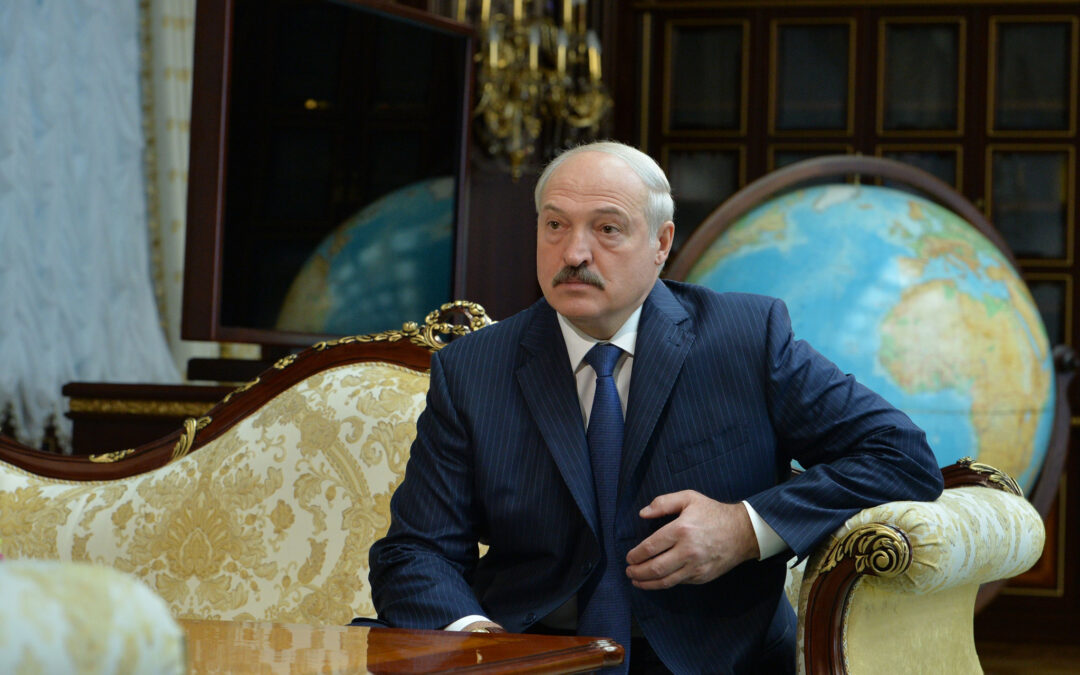During a rare press conference, Belarusian President Alexander Lukashenko said that his country needed to find a “common language” with Poland. He claimed that unofficial talks have already been taking place, and that Warsaw had offered his country coronavirus vaccines as humanitarian aid.
The remarks represent a significant change of tone. Lukashenko has previously criticised Poland for supporting the democratic Belarusian opposition and accused it of trying to seize former Polish lands from Belarus.
On Monday, Lukashenko answered questions as part of a co-called “big conversation”, an 8-hour conference on the anniversary of last year’s elections that he claimed victory in amid widespread evidence of fraud. That sparked mass protests and crackdowns that still continue.
The Belarusian dictator said that “unofficial dialogue” had been maintained with Poland, with relations “continuing at various levels”, reports the Polish Press Agency (PAP). But he now called for “normal relations” between the neighbouring countries.
“We can see that the Polish authorities understand what a swamp they are in, and we are sitting there with them,” he said. “We will find a common language because we cannot run away from it.”
Lukashenko warned that sanctions against his country, which Warsaw has supported, could end up having the opposite effect to to that intended. “That is shown by today’s reality, [by] what we hear about,” he added, referring to the situation at the Polish-Belarusian border.
Poland has apprehended hundreds of people crossing illegally from Belarus. More were detained last weekend than in the whole of 2020. Warsaw last week accused Lukashenko of using migrants as “living weapons” in a “hybrid war” against Poland and Lithuania, which has also supported his opponents.
During his conference, Lukashenko claimed that Poland offered his country AstraZeneca vaccines as humanitarian aid. “In fact, I agreed to it, to give people a choice, because we do not have Western vaccines in Belarus,” he said. Poland has not commented on the remarks.
Lukashenko also defended Polish investments in the country. “Why should we fight with business or with Poles? Why? They are normal people to live with,” he told journalists.
Relations between the Poland and Belarus have declined rapidly after the outbreak of protests last year, since when Poland’s prime minister has twice met with exiled Belarusian opposition leader Sviatlana Tsikhanouskaya.
Poland has given asylum to hundreds of Belarusians fleeing the regime, and has provided various forms of support to students and businesses to relocate from Belarus. Warsaw has also led calls for the European Union to take firmer action against Minsk.
In response, Lukashenko has accused Poland of seeking to capitalise on the situation in his country by reclaiming former Polish territories from Belarus, despite no such statements coming from Polish officials.
This year, the Belarusian authorities have mounted a campaign of repression against the country’s large ethnic Polish minority, including detaining a number of its leaders. They are accused of “rehabilitating Nazism and justifying the genocide of the Belarusian nation”.
In another apparent provocation, Belarus this year declared a new national holiday on 17 September, marking the anniversary of the Soviet Union’s invasion and occupation of Poland at the start of the Second World War.
Russia, an ally of Minsk, also criticised the Polish government for “openly interfering in the domestic affairs of the Republic of Belarus”. The Kremlin “urged Warsaw to return to the universally accepted norms of international law and renounce its policy of undermining the sovereignty of its neighbour”.
Main image credit: МИД России/Flickr (under CC BY-NC-SA 2.0)

Maria Wilczek is deputy editor of Notes from Poland. She is a regular writer for The Times, The Economist and Al Jazeera English, and has also featured in Foreign Policy, Politico Europe, The Spectator and Gazeta Wyborcza.




















